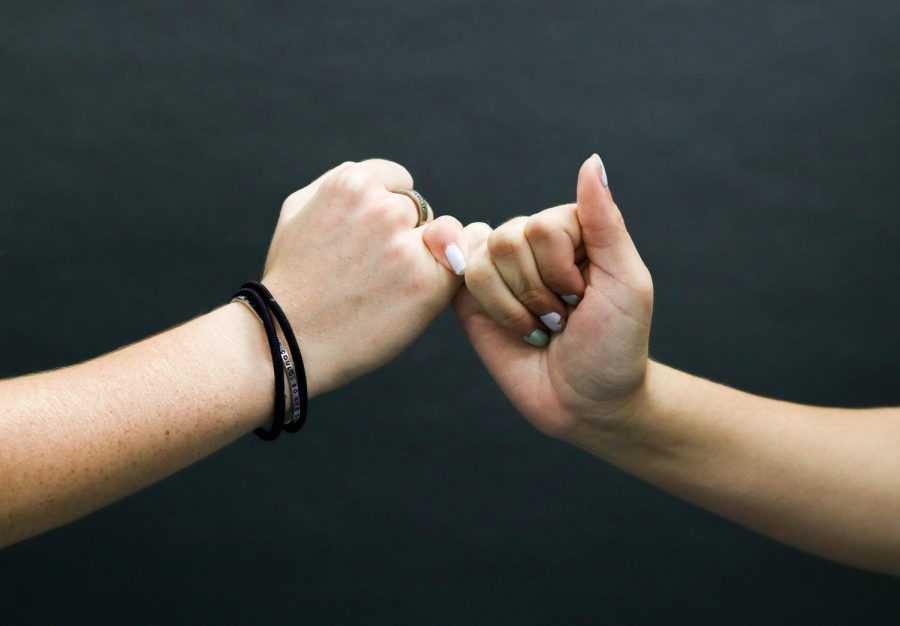A Guide to Friendship
As you grow older, the definition of “friendship” changes drastically. When you’re younger, you become best friends with a girl in your class because she shares her purple crayons. Throughout middle school, friendship gets a little muddled and then high school is the Godzilla of all friendships. You get told some friends stay and some friends go, and that’s it. It took a lot of experiences and motherly advice for me to begin to understand friendship’s true nature — there is no set one.
Everyone has their own forms of friendship, and it isn’t always set in stone. Some friendships can move like a pendulum, going farther and closer to one another in tangent. So I am going to break down different kinds of friendships and relay the advice I was given that helped me be more confident and empathetic in my relationships.
Best Friends
One piece of advice that I will always carry with me is to not compare your relationships to those of others. Everyone has their own unique personality, and relationships are based on personalities, so very few are the same. A best friend doesn’t have to be just like you see in movies — attached at the hip, do everything together all the time — because in some cases, that’s just unrealistic. Sometimes all you need is that person that is there for you no matter what, or no matter how long you go without seeing one another, you can pick up right where you left off. Moral of the story is friendship is relative to your life and your life only.
Pendulum Friends
There are many reasons you could end up with a pendulum friend. Maybe you just don’t see each other for a while so you grow apart, but end up in a class together later and grow back together. It also could be because you are both growing and there becomes a rift, as your personalities aren’t connecting at the moment — but growing never stops, so there is always the potential that they will connect again in the future. My piece of advice for this is to not be afraid or uncomfortable to distance yourself from relationships. It doesn’t mean you are gonna lose them or you hate their guts all of a sudden, you just need your own time.
Toxic Friends
These friends are more common than many people think but are often the hardest to find or identify. This is mostly because sometimes they don’t even know they’re being toxic themselves. There is no one way someone can be toxic, but a good rule of thumb is if they make you feel unsafe, doubt yourself, or are crossing your moral lines, they are toxic for you. A common misconception is that when you notice a toxic friend, you should just up and leave without a word, but this can create more problems for you. It is best to attempt to address the situation and air out how you feel before placing your distance. If they deny, refuse, or don’t care, then be on your way. Other times, they weren’t aware of how their actions or words were affecting you; in that case, still find your space, so you have time to heal, and they have time to fix what they feel they need to. After some time passes, you can try to reconnect and start again from there. Never force yourself to stay in that situation, even if you feel guilty or believe they need help — you have to put yourself first and help yourself before you can help anyone else.


